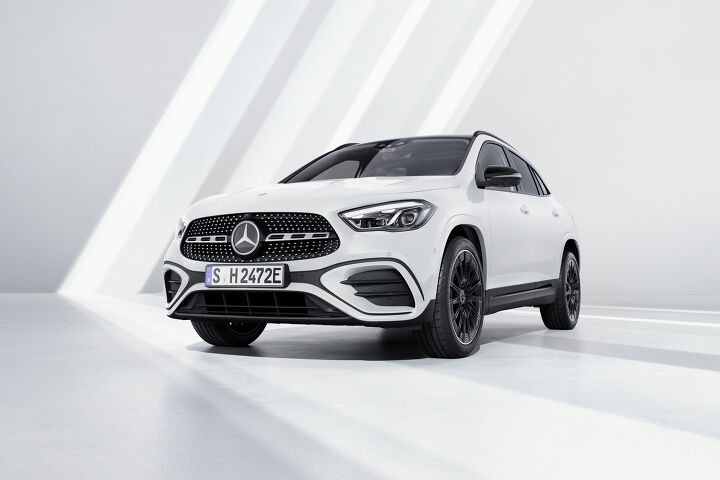
Mercedes-Benz is reportedly in negotiations about potentially using BMW-sourced motors on future models. The engine in question is said to be a four-cylinder unit that would go into a wide range of products.
Automakers borrowing powertrains from other manufacturers is hardly new. I’ve owned a couple of vintage Mopar products with the word Mitsubishi stamped on the motor. Pop the hood of your modern Toyota Supra or GR86 and you’ll likewise find something manufactured by BMW or Subaru.
Mercedes-Benz has likewise sourced units from Nissan and Renault in recent years, particularly for its SUVs and vans. China’s Geely is also starting to provide the German brand with 2.0-liter inline-four engines to be slotted into an array of global market vehicles. However, utilizing Chinese labor could cause problems for Mercedes on the U.S. market — which is allegedly why it’s looking to BMW for help.
According to Autocar, Mercedes-Benz has confirmed that it and BMW are “already at high level of planning and negotiations, and an announcement on whether it will go ahead [is] expected before the end of the year.” BMW has said nothing on the matter, however.

From Autocar:
The agreement between the rival companies is being framed as a “strategic step to cut development costs”.
For Mercedes, it would secure a Euro 7-compliant engine supply – crucial to the continuation of ICE models – while helping it to expand plug-in hybrid offerings without further heavy investment in four-cylinder engine development.
The move comes as Mercedes phases in its new turbocharged 1.5-litre four-cylinder M252 engine, developed in-house in Germany but produced in China by Horse, a joint venture between Geely and Renault.
Already offered in the new CLA, the M252 engine is offered with three outputs – 136bhp, 163bhp and 190bhp – and combined with a an eight-speed dual-clutch automatic gearbox housing a 27bhp electric motor.
Unlike the M252 (shown inside the above CLA), the BMW-derived engine is supposed to be able to support PHEV or range-extenders. That could further help it satisfy stringent European emissions while also avoiding supply issues between the United States and China.

Germany’s Manager Magazin was the first outlet to note the German brands’ prospective collaboration. It noted that the motor — assumed to be another 2.0-liter turbo based on the B48 (pictured above)— would likely find its way into models like the “CLA through the GLA, GLB, C-Class, E-Class and GLC.”
Assembly is assumed to take place in Steyr, Austria, with the engine being able to be packaged for both longitudinal and transverse layouts. The first models assumed to use the motor are anticipated to arrive sometime in 2027.
While it’s genuinely odd to see two of the most bitter automotive rivals talking about such deep collaboration, Mercedes is assumed to have been caught with its pants down over electrification efforts. The brand arguably dove into EVs a little sooner than some of its rivals and has found itself in a position where it needs to transition quickly back to combustion models to drive sales. But it may not want to abandon EV development if it thinks gasoline-powered models will eventually be mandated out of existence.
Expect an update on this story later this year.

[Images: Mercedes-Benz]
Become a TTAC insider. Get the latest news, features, TTAC takes, and everything else that gets to the truth about cars first by subscribing to our newsletter.

